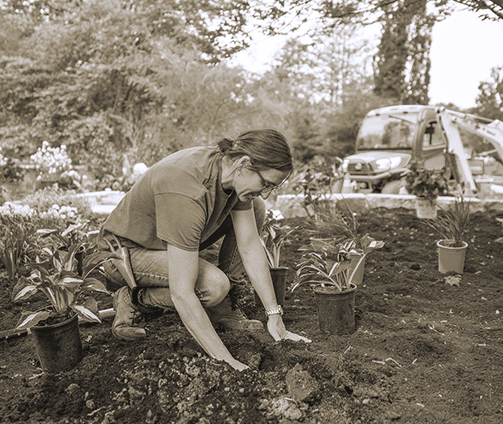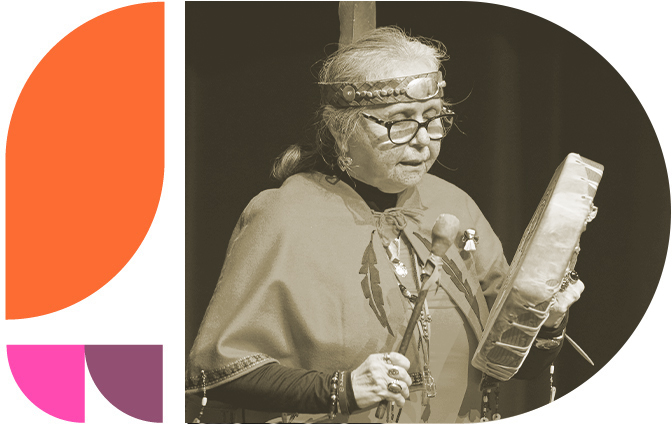

This year marked a new chapter for CICan with the launch of our Roadmap to 2026 – a focused, future-facing plan to sharpen and amplify our national impact. For the first time, all of our work was anchored in five clear and ambitious impact goals: accelerating Canada’s economic growth through applied research, building a job-ready workforce, creating strategic opportunities to address shared global challenges, advancing reconciliation, and supporting climate action.
More than aspirations, these goals are direct responses to Canada’s most urgent priorities and the evolving realities of our members. They guide where we invest our energy, how we deploy our resources, and where we drive change that matters. Most importantly, they unite our members around shared priorities, driving collective action toward a stronger, more resilient Canada.
By March 2026, CICan committed to increasing federal funding for college and institute applied research and innovation initiatives. Our focus in 2024-25 was on raising awareness among Parliamentarians, government and research funders about the unique strengths of our members in responding to the economic and social innovation needs of local businesses and communities and improve their ability to de-risk new technology adoption and address Canada’s productivity and competitiveness gaps. Our sector leads the country in industry-driven research with 61 % of our partners being Canadian SMEs and 99.7 % of our research partnerships taking place in Canada, thus driving made-in-Canada and for-Canada solutions.

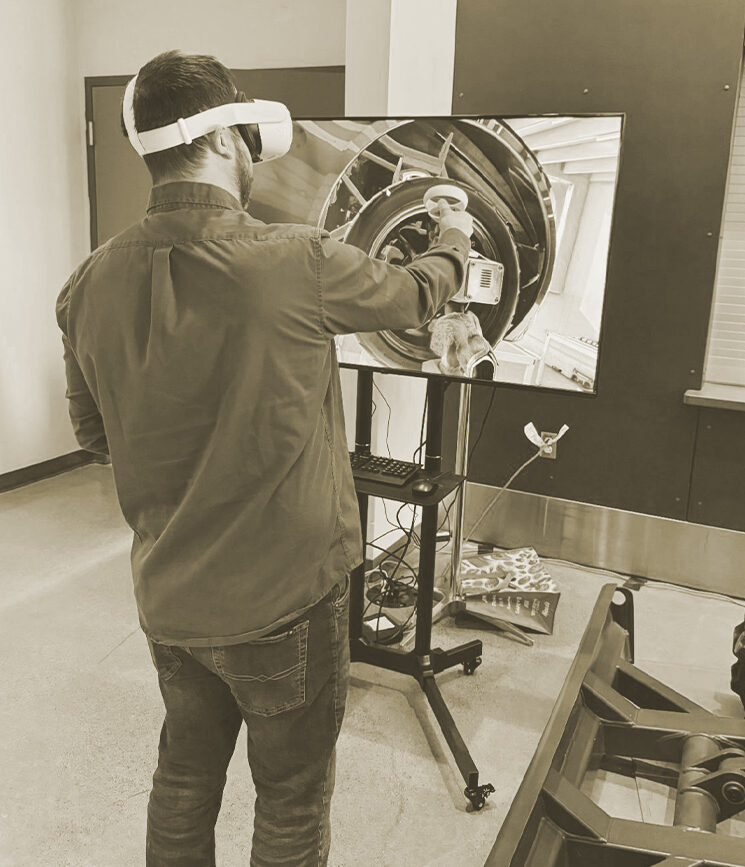
Despite leading nearly 8,600 applied research projects last year — resulting in close to 9,000 new products, prototypes, processes, and services, according to a 2024 CICan survey — colleges and institutes receive just 2.9% of federal research funding. We made the ambitious but necessary call of tripling this investment to 10% and ensuring college eligibility in major federal research granting programs to harness the full potential and power of college applied research for on-the-ground impact and optimization of federal research dollars.

Submissions and consultations, including Modernizing Canada’s Federal Funding Ecosystem to Drive Impact and Harnessing Applied Research to Meet Canada’s Challenges.
Appearances before House of Commons Standing Committees (see: Innovation for Impact: Insights from CICan’s CEO Pari Johnston at the Standing Committee on Science and Research).
CICan advocated for a fundamental rethink of Canada’s research ecosystem to focus on tangible impact on Canadians’ daily lives. As emphasized by Pari Johnston in The Hill Times (Sept. 25, 2024), Canada needs a more inclusive, impact-driven approach to research funding, one that fully leverages the applied, mission-driven work of our sector.
Read: Canada’s Research Ecosystem Must Drive Impact
With nearly 700 locations across Canada, colleges and institutes are uniquely positioned to support local small businesses by providing access to specialized expertise and state-of-the-art facilities. They help businesses innovate, reskill displaced workers, and accelerate the adoption of new technologies in key areas such as housing construction, advanced manufacturing, climate-smart agriculture and food production, and social innovation.
Read: The Time is Now for Colleges and Institutes

Over the year, CICan, and representatives from our National Research Advisory Council (NRAC), continued the work of positioning the college system as integral not only to Canada’s research ecosystem, but to Canada’s economic prosperity, productivity and competitiveness.
Highlights of our work this year:
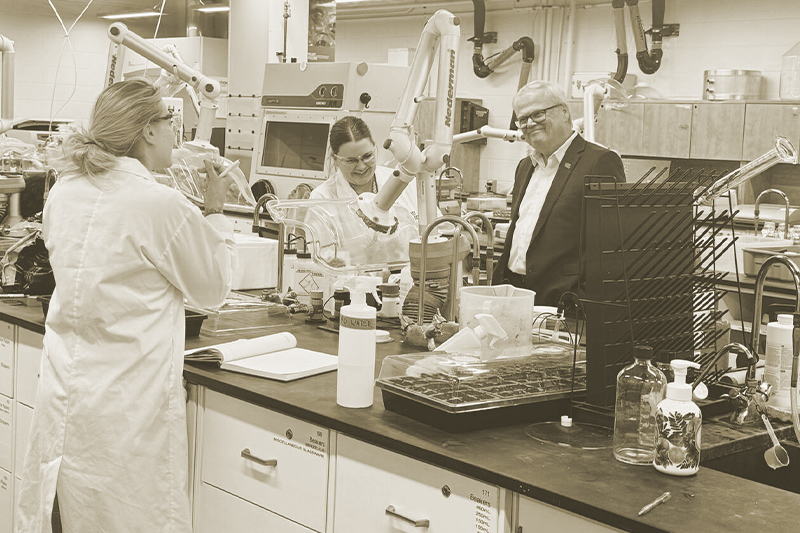
In December 2024, CICan successfully influenced the House of Commons Standing Committee on Science and Research (SRSR) to include its recommendations in a report on federal research funding distribution. The report recognized:
These mark significant advocacy wins for CICan in advancing colleges as equal partners in Canada’s research funding ecosystem.

Inclusive leadership is a proven driver of innovation, productivity, and resilience in small and medium-sized enterprises (SMEs). As part of the Government of Canada’s 50–30 Challenge, CICan supported SMEs in strengthening their EDI practices by helping them work toward 50% gender parity and 30% representation of equity-deserving groups in leadership roles. The challenge equips participating organizations with tools and resources to embed inclusive leadership within their operations.
While CICan’s 50-30 Challenge Project has now concluded, our National Equity, Diversity and Inclusion Advisory Committee will continue to provide guidance on our important work and commitments. The Knowledge Mobilization and Dissemination Centres established through the initiative will sustain its impact, ensuring that progress continues well beyond the project’s formal conclusion in March 2025.
In 2024–25, CICan addressed labour shortages, economic volatility, and demographic shifts by promoting Canada’s public colleges, institutes, CEGEPs, and polytechnics as essential to Canada’s talent pipeline. We focused on sectors with urgent workforce needs – healthcare, skilled trades, clean tech, and agri-tech – championing national investments to scale innovation, expand access, expand digital delivery and open-source tools, and align training with labour market realities.

Active projects related to boosting job-ready workforce.
CICan members involved in delivering the projects.
Students trained or placed in high-growth sectors.
Events showcasing member education and training.
Meetings with Parliamentarians.
Thanks to our partnership with Palette Skills, we convened 13 member institutions to co-develop four new microcredentials in critical growth areas. These rapid training programs were launched across the country, offering mid-career workers accessible pathways to new employment in areas like clean tech and advanced manufacturing.

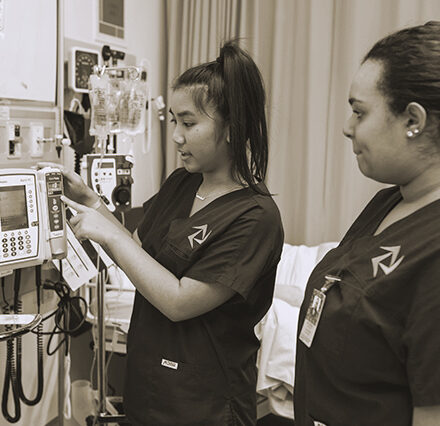
We’re helping to scale the use of virtual work-integrated learning (WIL) tools to support the next generation of healthcare professionals. To date, more than 10,000 students at 50+ institutions have gained hands-on experience through over 200 peer-reviewed simulations, designed to boost clinical confidence and job readiness. These virtual simulations are now publicly available to educators across the country.
Thanks to new federal funding from Employment and Social Development Canada secured this year, more members will be able to offer these immersive, job-readiness tools in 2025–26, supporting nurses, paramedics, and other frontline professionals build clinical confidence, enhance the quality of care and support stronger help outcomes.
In the last year, we partnered with Junior Achievement Canada and RBC Future Launch to support 20 high school recruitment events across the country. These hands-on experiences introduced youth to trades and technology programs, helping build interest early and address persistent labour gaps in sectors like construction and manufacturing.
Based on the success of the partnership, funding was extended into 2025–26 to allow more members to engage future talent and expand their outreach in communities across the country.

To help Canadians better understand their skills, identify training gaps, and access relevant member institution programs, we advanced the development of a new digital skills and career navigation tool. Designed with real-time labour market data and personalized pathways, the tool will support lifelong learning and career mobility.
We also join the Canadian Coalition for Affordable Learning (CCAL), a national initiative dedicated to reducing financial barriers for post-secondary students. The Coalition brings together organizations committed to enhancing access and affordability through Open Educational Resources (OER), flexible learning, and digital transformation.
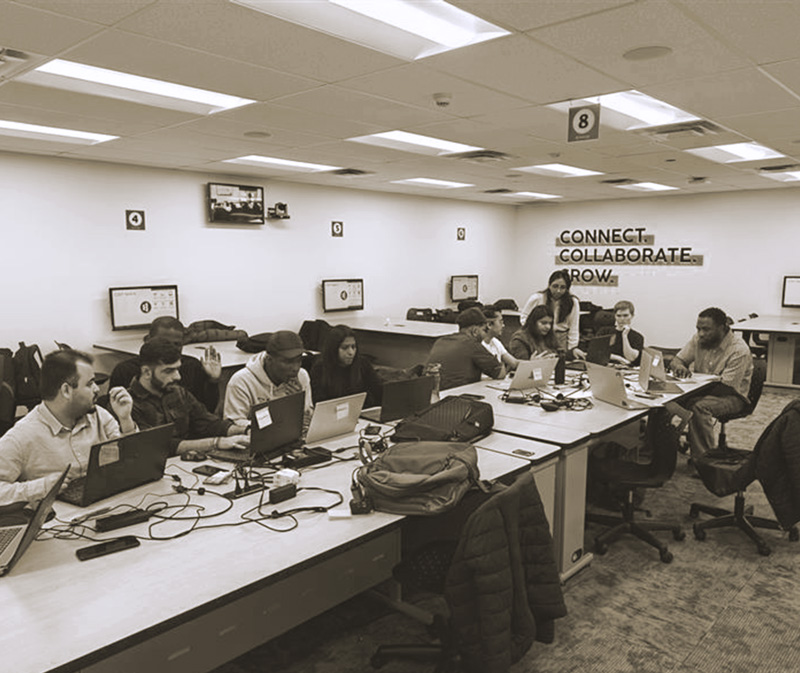
This tool will support training access, career mobility, and job readiness for Canadians nationwide.

Our pre-arrival services helped more newcomers enter the Canadian labour market with confidence. In 2024–25, we continued to deliver early employment preparation to immigrants before their arrival – building on a track record of success since 2007.
In recognition of this ongoing impact, the Government of Canada confirmed renewed funding for the initiative in this fiscal year, extending support for several more years.
In today’s shifting global economy, Canada’s builders, makers, growers, caregivers, and first responders need a global perspective that includes the ability to adapt to unfamiliar environments, communicate across cultures, think on their feet, and bring fresh insights, ideas and innovations to employers facing local and global challenges.
Wrapping up this past March, Global Skills Opportunity (GSO) was a joint program between Colleges and Institutes Canada and Universities Canada and funded by Employment and Social Development Canada (ESDC) making international learning experiences more accessible for Canadian post-secondary students. Nearly 15,000 Canadian students studied and worked in more than 100 countries through GSO.
In September 2024, 13 GSO Ambassadors came to Ottawa to meet with their Members of Parliament, participate in panel discussions and attend a networking reception with decision-makers and stakeholders to share how their experiences studying and working abroad have benefited their lives and careers.
As the new government sets out to build a stronger economy and workforce, expand trade, and protect Canadian values, programs like GSO leave a lasting impact on the next generation that cannot be overlooked.

CICan’s work this year focused on deepening international partnerships, creating new pathways for member institutions to engage globally, and aligning our members’ expertise in skills, industry and workforce development with Canada’s international cooperation and export priorities.


This year, 40 CICan member institutions participated in international global engagement missions to the Indo-Pacific and Latin America, strengthening Canada’s visibility abroad and creating long-term partnerships across the college and institute sector.
In alignment with Canada’s Indo-Pacific strategy, CICan:

We also expanded our strategic partnerships in international development cooperation by:

2024 marked a decade since the launch of CICan’s Indigenous Education Protocol – an important milestone and a timely moment for reflection, renewal, and action. Originally developed to guide institutions in better supporting Indigenous learners, the Protocol has now been signed by 74 member institutions and continues to serve as a framework for transformational change.
To honour this milestone, we launched a sector-wide renewal process under the theme of ReconciliACTION, a call to move beyond commitment toward measurable, community-driven progress.
Working under the leadership of our Indigenous Education Advisory Committee, we initiated a comprehensive refresh of the Protocol at our Indigenous Education Symposium in October 2024. The updated version will launch at the October 2025 Indigenous Education Symposium in Calgary, followed by a national mobilization campaign to increase signatories and deepen sector engagement.
Co-hosted with the Indigenous Institutes Consortium and held on Mi’kmaw territory in Halifax, the 2024 Symposium welcomed 330+ leaders, educators, and advocates from across the country. The event was both a celebration and a space to share practices, strengthen relationships, and spark the next era of Indigenous postsecondary leadership.
We heard firsthand about the importance of land connections, community relationships, language revitalization, and embedding Indigenous perspectives into institutional decision-making in Canada’s network of public colleges, institutes, CEGEPS and polytechnics. Across the 30-plus programs, projects, and partnerships showcased at the symposium, each emphasized the vital role Indigenous Peoples and communities play as partners – not only in education but as solution providers, change-makers, and leaders driving Canada’s economy.
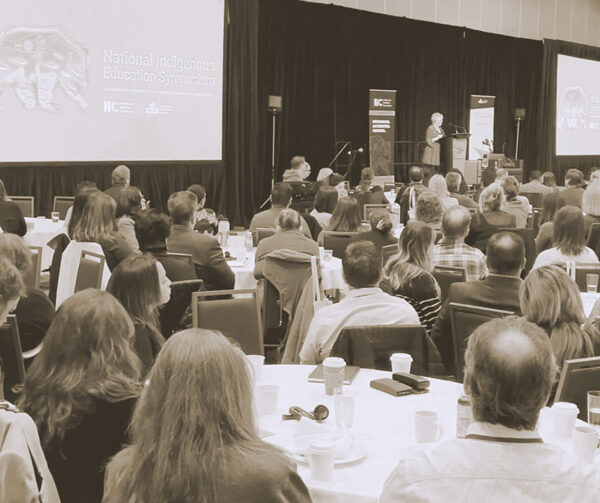

As part of our strategic renewal, we launched two new initiatives to support Indigenous learners and institutions in driving community-led innovation and opportunity:
Mobilizing wider sector uptake of the renewed Protocol.
Expanding partnerships with Indigenous-led institutions and national organizations.
Advocating for stronger federal investment in Indigenous learners and research.
With 86% of Indigenous Peoples living within 50 km of a college or institute, our sector holds a unique responsibility - and opportunity - to lead reconciliation through education.
CICan supports climate action by connecting member institutions, showcasing their leadership, and helping secure national investments in campus-based sustainability. While our members lead on the ground, we play a vital role in turning member-driven innovation into national – and global – impact by advancing shared priorities and expertise.
In 2024–25, with continued federal support from Environment and Climate Change Canada and Global Affairs Canada, we led several initiatives to help members reduce emissions, embed sustainability in curriculum, and strengthen climate resilience:
Open-source training modules, developed and peer-reviewed by trades faculty, are helping instructors integrate climate change and Indigenous perspectives into construction programs. Available in disciplines including carpentry, electrical, landscaping, and HVAC, these resources help integrate sustainability into trades education and prepare students with in-demand green skills.
We supported 17 member-led projects that turn campuses into sustainability demonstration sites, integrating teaching, applied research, and operations to reduce emissions and engage communities. With continued federal support, more projects are being funded in 2025 to expand this work across the country.
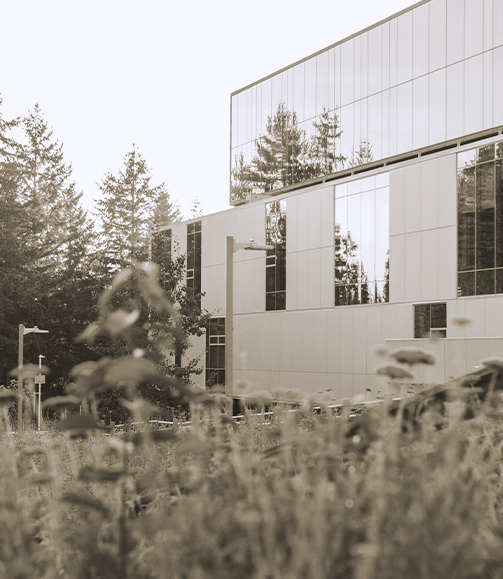
Dawson College’s Campus Living Lab project uses vermicomposting to transform cafeteria food waste into compost for rooftop gardens and a native plant nursery. Students in environmental science and agriculture courses gain hands-on experience with waste reduction and resource management, while the project supports food security and contributes to campus Indigenization by “bringing nature back onto the campus.”
In 2024-2025, we facilitated two national communities of practice that brought together staff from member institutions to share strategies, resources, and peer expertise. The two groups held 17 virtual meetings over the year. One group focused on reducing Scope 3 greenhouse gas emissions, while the other supported institutions advancing the UN Sustainable Development Goals (SDGs) through education and community engagement. Both communities continue to meet in 2025–26, strengthening sector-wide collaboration on climate action and sustainability.
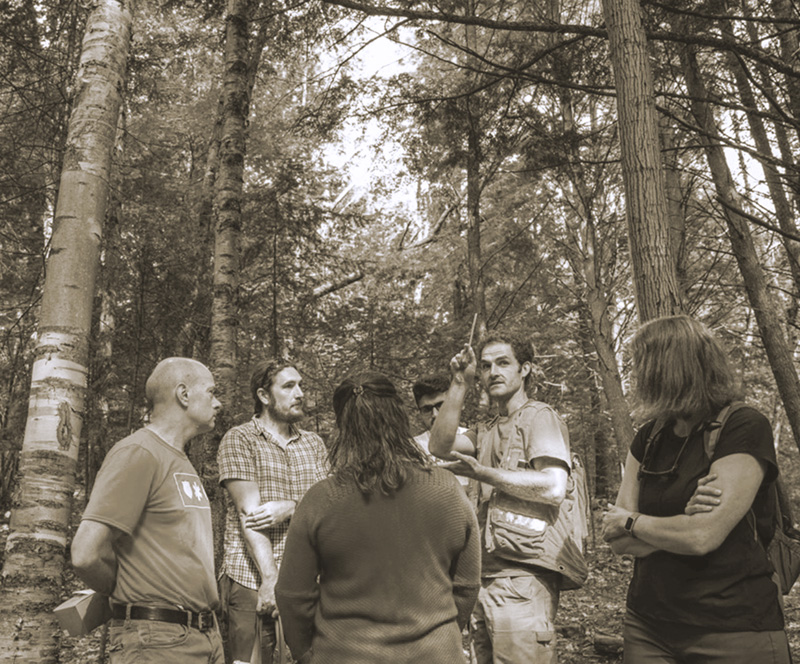
CICan’s SAGE program extends the climate leadership of member institutions beyond Canada by supporting inclusive, market-aligned training in green sectors across the Caribbean. Delivered by our members in partnership with local institutions, SAGE empowers youth, women, and underserved communities to build skills for in-demand careers. In addition to supporting educators and strengthening institutional capacity, the program has provided training to more than 1,000 students in areas such as renewable energy, sustainable agriculture, and eco-tourism.
